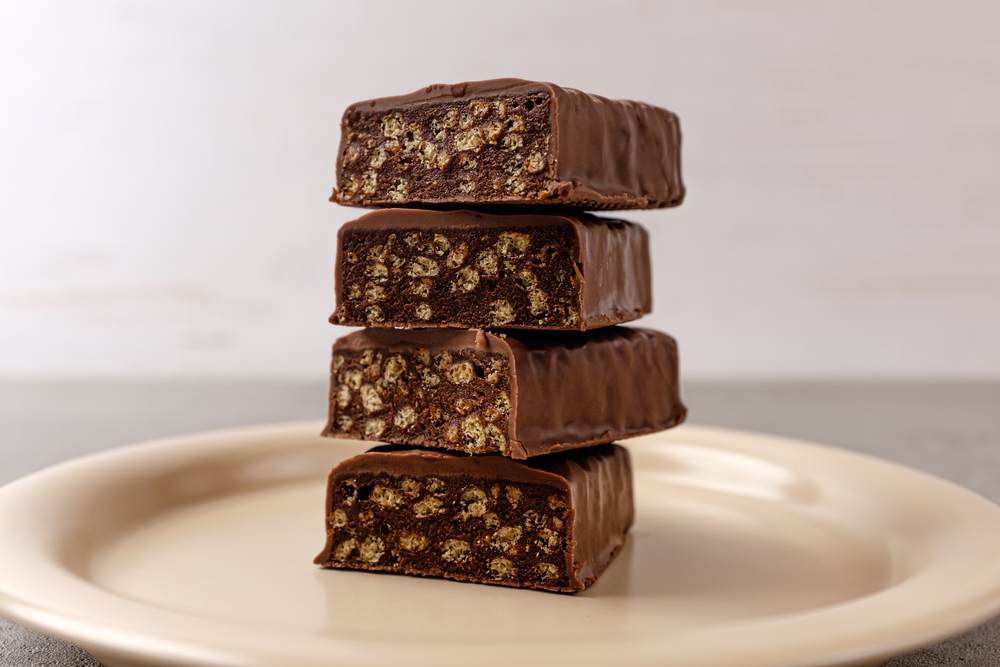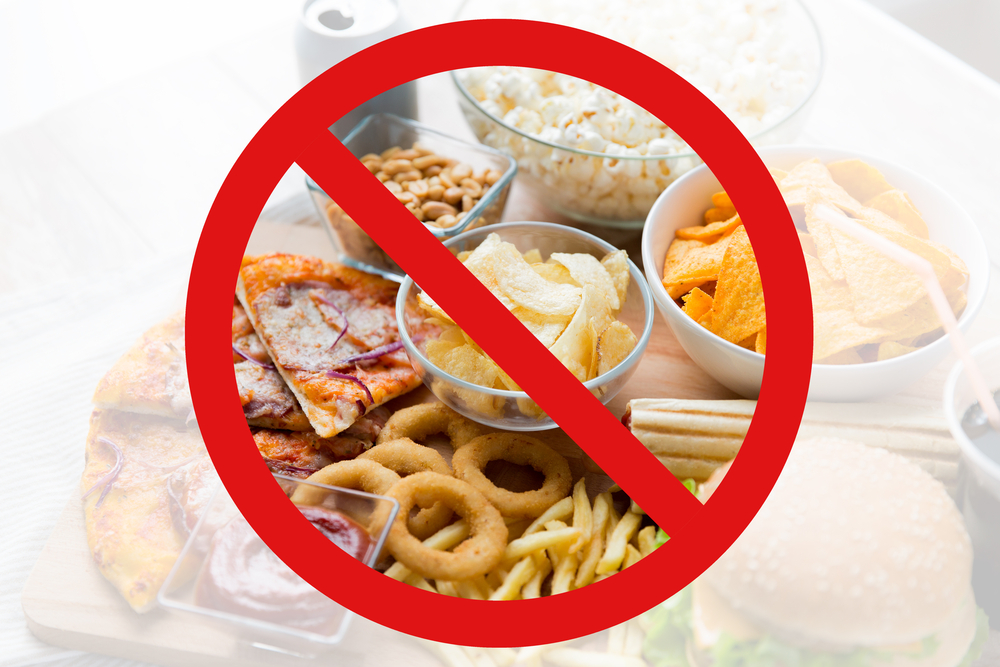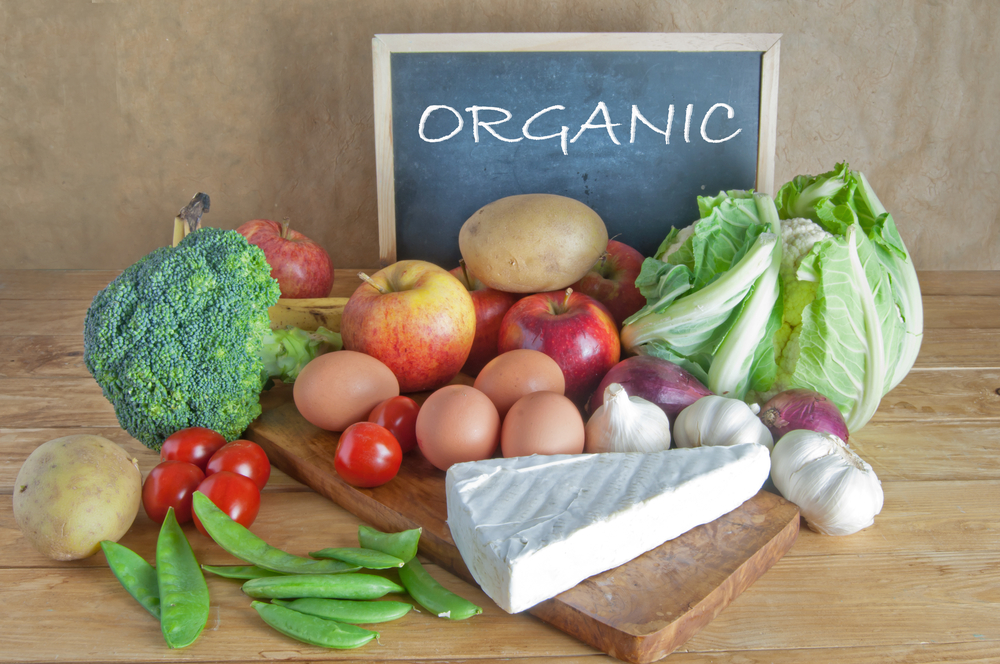When it comes to food and health, people sometimes hold onto beliefs that are as strange as they are misguided. These myths can range from the mildly amusing to the downright baffling. Let’s explore some of the more peculiar ideas people have about what they eat and how it affects their well-being. Whether it’s a misunderstanding of basic nutrition or a quirk passed down through generations, these oddities remind us that food and health are subjects filled with misconceptions.
1. Eating Celery Burns More Calories Than It Contains

People have long touted celery as the ultimate “negative-calorie” food, claiming that munching on it burns more calories than it provides. This belief hinges on the idea that the act of chewing and digesting celery uses up more energy than the meager six calories a stalk contains. However, according to dietitian Lisa Cimperman, this is more myth than reality; while celery is indeed low in calories, the energy expended in its consumption is negligible. The negative-calorie food concept is more wishful thinking than scientific fact.
Celery is certainly a healthy snack, offering fiber and hydration, but it won’t single-handedly tip the scale in your favor. It’s a staple in many diets because of its low-calorie content and versatility, pairing well with foods that require a crunchy complement. But to rely on it as a magical calorie-burner is to misunderstand the nuances of metabolism. A balanced diet, rather than singular food choices, is crucial for effective weight management.
2. Carrots Can Give You Night Vision

The belief that carrots can enhance eyesight, particularly at night, has been popularized for decades. This myth originated from World War II propaganda, when British pilots were said to eat carrots to improve their night vision, a story concocted to disguise radar technology advancements. While carrots are rich in beta-carotene, a precursor of vitamin A, essential for eye health, they don’t grant night vision superpowers.
Vitamin A is indeed crucial for good vision, particularly in low-light conditions, but its benefits are limited to maintaining overall eye health. Eating carrots in moderation contributes to a balanced diet and supports healthy vision, but won’t transform your eyes into night-vision goggles. It’s always a good idea to include a variety of colorful fruits and vegetables to ensure a comprehensive intake of essential nutrients.
3. Detox Diets Cleanse Your System

Detox diets are often marketed as a way to cleanse your body of toxins, promising rejuvenation and weight loss. Proponents argue that these diets, usually involving juices or restrictive eating plans, help the body eliminate harmful substances accumulated over time. However, nutrition expert Dr. Peter Cohen points out that the body already has a sophisticated detox system in place—our liver and kidneys do an excellent job of filtering out toxins naturally.
While a detox diet might make you feel better temporarily due to the reduction of processed foods and an increase in hydration, it doesn’t offer long-term health benefits. The body’s detox system is continuously at work, and there’s no need for drastic measures to aid it. Instead of short-term detox diets, adopting a balanced, nutritious diet supports your body’s natural cleansing processes more effectively over time.
4. Gum Takes Seven Years To Digest

There’s a common warning that swallowed gum lingers in your stomach for seven years, a belief that has been passed down through generations. The idea is that gum is indigestible, so it must stick around, causing potential harm. However, this is more of an old wives’ tale than a scientific fact. The human digestive system is remarkably efficient at dealing with such challenges.
While gum is not digested in the same way as other foods, it doesn’t stay in your stomach indefinitely. It moves through the digestive tract and is excreted like other indigestible materials. Though there’s no harm in enjoying gum occasionally, swallowing it intentionally isn’t advised, as it could pose a risk of obstruction if consumed in large amounts.
5. Eating Cheese Before Bed Causes Nightmares

The notion that cheese before bed can lead to nightmares is a myth that has puzzled many. Some people hold the belief that the rich, fatty content of cheese may disrupt sleep patterns and induce vivid dreams. Yet, a study by Dr. Nigel Brooks found no scientific evidence supporting the idea that cheese specifically causes nightmares. Instead, the correlation between cheese and dreams might be more anecdotal than substantiated.
Eating cheese, like any other food, can affect sleep if consumed too close to bedtime, potentially due to indigestion or its impact on REM sleep. However, this doesn’t mean cheese is a dream-inducing culprit. For those who enjoy a snack before sleep, moderation and timing are critical to ensure a restful night without the interference of unsettling dreams.
6. Chocolate Causes Acne

Chocolate has often been blamed for causing acne, much to the chagrin of chocoholics everywhere. This belief might stem from its sugar content and association with other high-fat, high-sugar foods. However, dermatological studies have not definitively linked chocolate consumption directly with acne outbreaks. Instead, acne is more closely related to hormonal changes, genetics, and oil production.
While indulging in excessive amounts of chocolate or any sugary treat can impact overall skin health, moderate consumption is unlikely to trigger acne. The myth persists partly because chocolate is often eaten in conjunction with other less healthy foods. Maintaining a balanced diet and good skincare regimen is a more effective approach to managing acne than cutting out chocolate entirely.
7. Drinking Coffee Stunts Growth

The idea that coffee can stunt growth has been a persistent myth, especially concerning children and teenagers. This belief likely arose from the caffeine content in coffee, which affects calcium absorption, crucial for bone growth. However, Dr. Grace Wyshak’s research shows that moderate coffee consumption does not have a significant impact on bone health or growth in adolescents.
While excessive caffeine can lead to other health concerns, such as insomnia and increased heart rate, its effect on growth remains unproven. For young people, it’s more about moderation and ensuring a diverse diet that supports overall development. The myth persists more as a cautionary tale than a dietary reality, often used to deter young ones from developing a coffee habit.
8. Spicy Foods Cause Ulcers

For years, people have believed that spicy foods can lead to ulcers, a misconception that has been debunked by modern medicine. The original theory was that spicy foods irritate the stomach lining, resulting in ulcers. However, we now know that most ulcers are caused by the bacterium Helicobacter pylori or the prolonged use of NSAIDs. Spicy foods might aggravate symptoms for those with existing conditions, but they are not the root cause.
In fact, capsaicin, the compound that gives chili peppers their heat, has been shown to have protective effects on the stomach lining. This is a classic case of correlation not equating to causation; while discomfort might be a temporary side effect, it’s not indicative of ulcer formation. Enjoying spicy foods in moderation should pose no harm to a healthy digestive system.
9. Fat-Free Foods Are Healthier

There’s a prevailing assumption that fat-free foods are inherently healthier, often seen as a staple in weight-loss diets. This belief rests on the notion that cutting out fat will lead to fewer calories and, thus, less weight gain. However, in the pursuit of fat reduction, these products often contain added sugars and artificial ingredients to enhance flavor, which can be just as detrimental to health as fat.
Nutrition experts emphasize the importance of healthy fats, like those found in nuts, avocados, and olive oil, which are crucial for bodily functions. The key is distinguishing between good and bad fats rather than eliminating them entirely. A balanced diet that includes healthy fats is more beneficial for long-term health than relying solely on fat-free alternatives.
10. Organic Foods Are Always Superior

The label “organic” often carries the implication of superior nutrition and health benefits, a belief that has gained traction among health-conscious consumers. While organic foods are grown without synthetic pesticides or fertilizers, this does not necessarily make them nutritionally superior to conventional options. The nutrient content between organic and non-organic produce is often comparable, with factors like soil quality and farming practices playing a more significant role.
Organic foods are generally perceived as cleaner and more environmentally friendly, which can be appealing. However, the decision to choose organic should consider factors beyond nutrition, such as environmental impact and personal values. Being informed about the origins and cultivation methods of your food is more beneficial than assuming organic equates to healthier.
11. Gluten-Free Equals Weight Loss

Many people associate gluten-free diets with weight loss, a trend fueled by celebrity endorsements and popular diet fads. The assumption is that eliminating gluten, a protein found in wheat, barley, and rye, will automatically lead to shedding pounds. However, for those without celiac disease or gluten sensitivity, a gluten-free diet may not offer weight loss benefits and could lack essential nutrients.
Nutritionist Dr. Jane Anderson explains that gluten-free products often compensate for the absence of gluten with added sugars and fats, undermining their healthfulness. Moreover, the focus on gluten-free can distract from more effective weight management strategies like portion control and balanced nutrition. For most, a diverse diet that includes whole grains can be healthier and more sustainable than gluten-free alternatives.
12. You Lose Weight By Starving Yourself

The belief that skipping meals or drastically cutting calories is an effective weight-loss strategy is widespread but misguided. While initial weight loss may occur, it is often unsustainable and can lead to muscle loss, nutrient deficiencies, and a slowed metabolism. Long-term, this approach can backfire, causing the body to store fat more efficiently as a defense mechanism against perceived starvation.
Health professionals advocate for a balanced approach, encouraging regular meals that incorporate all food groups. Sustainable weight loss is achieved through a combination of healthy eating, regular exercise, and lifestyle changes. Starvation diets may offer quick results but ultimately undermine the body’s health and ability to maintain weight loss over time.
13. You Should Drink Eight Glasses Of Water A Day

The advice to drink eight glasses of water daily is widespread, often cited as a benchmark for adequate hydration. However, this guideline is more a general suggestion than a hard-and-fast rule, as individual hydration needs vary based on factors like climate, activity level, and diet. The origin of the “eight glasses” recommendation is unclear, though it has become deeply ingrained in popular health advice.
Dr. Randall Kroszner suggests that instead of fixating on a specific number, people should listen to their bodies and drink when thirsty. Other sources of hydration include foods like fruits and vegetables, which also contribute to daily fluid intake. Personalizing hydration to fit your lifestyle and needs is more effective than adhering strictly to an arbitrary standard.
Natasha is a seasoned lifestyle journalist and editor based in New York City. Originally from Sydney, during a stellar two-decade career, she has reported on the latest lifestyle news and trends for major media brands including Elle and Grazia.


